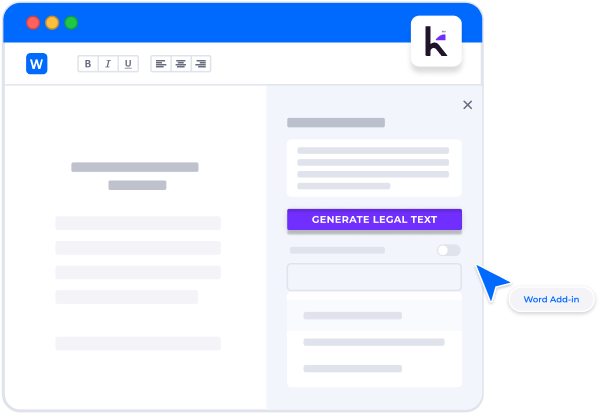Techstormy.com
Drafting with Kelsen Draft: innovation for the legal sector
In the ever-evolving landscape of today’s society, technology’s integration into every facet of life has left no industry untouched. The legal sector, known for its longstanding traditions and resistance to change, is now experiencing a profound transformation. At the forefront of this movement is Kelsen, a ground-breaking legal tech company founded by Pedro Bento de Faria, a Brazilian lawyer who left behind his legal career in Brazil to establish the company in Canada.
Pedro has shepherded Kelsen from its inception to their product launch. He is a lawyer, with a Master’s in International Law from the Graduate Institute of International Studies in Genva, Switzerland and an MBA from the University of Toronto, Canada.
Kelsen’s mission is to revolutionize the global legal market, a massive industry generating approximately a trillion dollars in yearly global revenues, nearly a third of which is derived from the immense North American legal market. The product they are launching, aptly named “Kelsen Draft,” is the first of its category: a text editor specialized in legal writing that is rooted in generative artificial intelligence. It possesses the ability to significantly accelerate the production of extensive legal documents. With Kelsen Draft, what used to take trained lawyers days or even weeks to create can now be crafted in a matter of hours, without compromising accuracy or quality. Most importantly: Draft amazes by providing accurate source references and meticulous fact-checking output, all without relying on predefined templates. For comparison, it enables lawyers with the ability to produce work comparable to an entire doctoral thesis in a single day—an unimaginable leap in productivity facilitated by Kelsen’s cutting-edge application of generative AI technology, a lot of which was developed in -house by Kelsen’s Chief Technology Officer and all-around digital wizard, Ahmed Orabi a 20-year veteran of IBM and post-doctoral researcher on natural language processing.
However, Kelsen faces a seemingly insurmountable challenge—one that lies not in the technology itself but in the conservative and resistant nature of the legal profession. Convincing traditional legal practitioners, who have spent their entire careers immersed in the comfort of familiar tools, that an AI-powered tool can outshine their expertise is no easy task.
Fortunately for Kelsen, this resistance is met with an opportune moment in the technological landscape. Generative AI is currently one of the most captivating and promising technologies, attracting billions of dollars in investment. This technological gold rush has led start-ups from various industries to seek revolutionary ways to integrate technology, pushing boundaries and disrupting sectors that were once considered immune to technological disruption.
The legal industry, often regarded as a conservative fortress impervious to change, now finds itself in an unparalleled situation. The field, inherently reliant on written text, serves as a natural target for the application of large language models powered by generative AI. The transformative potential of this emerging technology attracts a growing interest from both investors and entrepreneurs globally. Legal Tech, once a niche field, has now become a significant area of focus within investment portfolios.
Acknowledging the imminent transformation, major law firms worldwide are taking proactive steps to avoid being left behind in the technological revolution. They recognize the necessity of incorporating technology into their practices to evade being “Uberized”. In recent years, the emergence of technology innovation managers within law firms exemplifies this shift. These professionals, often lawyers themselves, are tasked with staying abreast of technological advancements and devising strategies for adopting cutting-edge tools and technologies in legal practice. Since 2023, this role has evolved to become not only more prevalent but has also taken on the critical function of reimagining the business models that have largely dominated legal practice since the 1930s.
Kelsen embarked on its journey in October 2022, immediately before the launch of ChatGPT, and had the extraordinary fortune of being in the right place at the right time. Since then, interest in generative artificial intelligence has grown exponentially, fostering an immense wave of technological innovation. Kelsen’s ongoing project aligns perfectly with this wave of innovation, empowering the legal profession to adapt and thrive in the digital era.
Kelsen’s remarkable story epitomizes how technological innovation can reshape even the most conservative industries. Their revolutionary product, “Kelsen Draft,” powered by generative artificial intelligence, is not only accelerating the production of legal documents but is also challenging deeply rooted practices within the field. As the legal industry undergoes a historic transformation, Kelsen stands as a pioneer in the transition to “Law 4.0.” This journey showcases the impactful combination of visionary entrepreneurship and advanced technology, paving the way for a future where the legal profession embraces the power of innovation.
